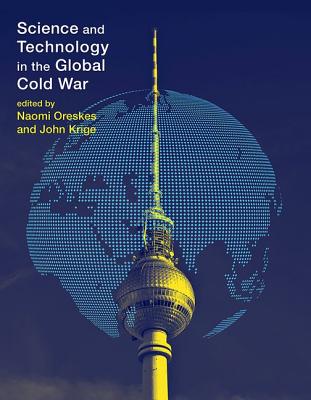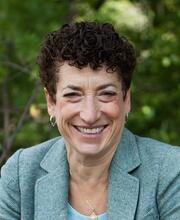

 MIT Press
MIT Press
Science and Technology in the Global Cold War


Key Metrics
- Naomi Oreskes
- MIT Press
- Hardcover
- 9780262027953
- 9.1 X 7.1 X 0.9 inches
- 1.95 pounds
- Science > History
- English
 Secure Transaction
Secure TransactionBook Description
Investigations of how the global Cold War shaped national scientific and technological practices in fields from biomedicine to rocket science.
The Cold War period saw a dramatic expansion of state-funded science and technology research. Government and military patronage shaped Cold War technoscientific practices, imposing methods that were project oriented, team based, and subject to national-security restrictions. These changes affected not just the arms race and the space race but also research in agriculture, biomedicine, computer science, ecology, meteorology, and other fields. This volume examines science and technology in the context of the Cold War, considering whether the new institutions and institutional arrangements that emerged globally constrained technoscientific inquiry or offered greater opportunities for it.
The contributors find that whatever the particular science, and whatever the political system in which that science was operating, the knowledge that was produced bore some relation to the goals of the nation-state. These goals varied from nation to nation; weapons research was emphasized in the United States and the Soviet Union, for example, but in France and China scientific independence and self-reliance dominated. The contributors also consider to what extent the changes to science and technology practices in this era were produced by the specific politics, anxieties, and aspirations of the Cold War.
Contributors
Elena Aronova, Erik M. Conway, Angela N. H. Creager, David Kaiser, John Krige, Naomi Oreskes, George Reisch, Sigrid Schmalzer, Sonja D. Schmid, Matthew Shindell, Asif A. Siddiqi, Zuoyue Wang, Benjamin Wilson
Author Bio
Oreskes is author or co-author of 7 books, and over 150 articles, essays and opinion pieces, including Merchants of Doubt (Bloomsbury, 2010), The Collapse of Western Civilization (Columbia University Press, 2014), Discerning Experts (University Chicago Press, 2019), Why Trust Science? (Princeton University Press, 2019), and Science on a Mission: American Oceanography from the Cold War to Climate Change, (University of Chicago Press, forthcoming). Merchants of Doubt, co-authored with Erik Conway, was the subject of a documentary film of the same name produced by participant Media and distributed by SONY Pictures Classics, and has been translated into nine languages.
A new edition of Merchants of Doubt, with an introduction by Al Gore, will be published in 2020.
Oreskes wrote the Introduction to the Melville House edition of the Papal Encyclical on Climate Change and Inequality, Laudato Si, and her essays and opinion pieces on climate change have appeared in leading newspapers around the globe, including The New York Times, The Washington Post, The Los Angeles Times, the Times (London), and Frankfurter Allegemeine.
Her numerous awards and prizes include the 2019 Geological Society of American Mary C. Rabbitt Award, the British Academy Medal 2019, the 2016 Stephen Schneider Award for outstanding Climate Science Communication, the 2015 Public Service Award of the Geological Society of America, the 2015 Herbert Feis Prize of the American Historical Association for her contributions to public history, and the 2014 American Geophysical Union Presidential Citation for Science and Society.
She is a fellow of the American Geophysical Union, the Geological Society of America, the American Association for the Advancement of Science, the American Academy of Arts and Sciences, and the American Philosophical Society.
In 2018 she was named a Guggenheim Fellow for a new book project with Erik Conway, “The Magic of the Marketplace: The True History of a False Idea,” which will be published by Bloomsbury Press as soon as it is finished.
Education
B.Sc. (First Class Honours) 1981 Royal School of Mines, Imperial College
Ph.D. 1990 Stanford University (Graduate Special Program: Geological Research and History of Science)
Source: Harvard University, Department of the History Science
Videos




Community reviews
Write a ReviewNo Community reviews